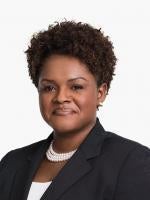While US healthcare providers are turning to foreign suppliers and domestic middlemen to secure personal protective equipment and medical supplies (PPE), they must remain mindful and take steps to avoid fraud, ensure compliance with Foreign Corrupt Practices Act requirements, address potential import restrictions and follow good supply chain procurement practices.
IN DEPTH
As US healthcare providers scramble to secure personal protective equipment and medical supplies (PPE) in the midst of global shortages, they often are forced to transact business with foreign suppliers and domestic middlemen with which they previously have not had contact. In many cases, purchasing decisions need to be made quickly. In light of these challenging circumstances, there are a number of things that healthcare providers should be mindful of when sourcing PPE.
1. Some Suppliers Do Not Have Capacity to Fulfill Large Orders or Are Fraudulent
In some countries, factories that manufacture non-medical products are being converted quickly to manufacture medical supplies. These suppliers may not have the resources, capacity or experience to fulfill large orders. In some countries, government authorities have taken control of privately owned PPE manufacturing operations and imposed controls on exports. (For example, while the government of China has taken official action to help facilitate and control the distribution of PPE from the country through contracts with foreign governments, it has not yet entered into agreements with the United States or Canada.) Consequently, purchasers should request confirmation of the actual location of the products.
There also are real risks of fraud. Suppliers who ask for the wire of funds without documentation are likely to be fraudulent. In some countries, background checks can be run on entities to better understand their operating history and the amount of capital that has been invested in them. A company that, until two weeks ago, manufactured watch batteries and had $50,000 of capital invested in it is unlikely to be able to fulfill an order for $3,000,000 of PPE.
2. The FCPA Applies to the Procurement of PPE
The Foreign Corrupt Practices Act of 1977 (the FCPA; 15 U.S.C. §§ 78dd-1, et seq.) prohibits paying foreign government officials to assist in obtaining or retaining business, and also prohibits paying to induce a foreign official to take an official act or to act in violation of his or her lawful duty.
In order to demonstrate a healthcare provider’s compliance with the FCPA, both due diligence on the third parties facilitating the transaction (brokers, foreign suppliers, etc.) and full documentation of the purchase transaction are critical. Due diligence should include reviews of the third party’s legal status, regulatory compliance, and potential political connections.
Documentation of the transaction is extremely important for FCPA purposes, as several countries operate state-owned entities (SOEs) that control healthcare supply production and distribution and fall squarely within the ambit of the FCPA. Entering into signed contracts and issuing purchase orders that clearly show the amount of specific PPE purchased, along with the purchase price, is important. The documentation also should specify that the third parties acknowledge the existence of, understand and agree to abide by all applicable anti-bribery and anti-corruption laws, including the FCPA. If monies are paid that are not clearly accounted for and documented, the concern raised by US law enforcement will be that some of the funds could have been or were diverted to bribe foreign officials in order to obtain the PPE and its export.
One additional requirement on cross-border transactions is an OFAC Sanctions check to confirm that the recipient of any payments is not prohibited from receiving them by the US Department of Treasury. Sanctions checks should be conducted on specific entities involved in the transaction, as well as their senior officers.
3. Healthcare Providers Need to Be Mindful of Import Restrictions
If PPE is shipped but cannot be imported into the United States, it will not help a healthcare provider. When the PPE being purchased includes FDA-regulated medical devices, it is helpful to source it from companies that are currently registered with the FDA and have a history of complying with FDA regulations. Although the FDA has relaxed legal requirements to allow the importation of medical devices and PPE without an FDA clearance, sourcing products from FDA-registered entities may provide greater assurance of quality and make it easier for shipments from the supplier to clear customs.
Prior to purchasing PPE, request photographs of the actual product, the package and the shipping container. Request photographs or evidence to confirm that products meet applicable US safety standards (e.g., US FDA 510(k) clearance, certificate of manufacture demonstrating compliance with NIOSH standards). Background checks on suppliers also can be conducted to determine whether the manufacturer has an active FDA registration, has been subject to FDA compliance issues (such as recalls, warning letters and import alerts), and whether the FDA has been satisfied with the manufacturer’s responses to inspections.
4. Follow Good Supply Chain Procurement Practices to the Greatest Extent Possible
To the greatest extent possible, healthcare providers should continue to press for contractual specificity in terms of the quality and composition of the PPE that they order, requesting samples of products in advance. This includes contractual commitments to insurance, risk of loss during shipment, the timing of delivery, and the process for the return and replacement of PPE that does not meet stated specifications (including those represented in the manufacturer’s FDA clearance).





 />i
/>i
